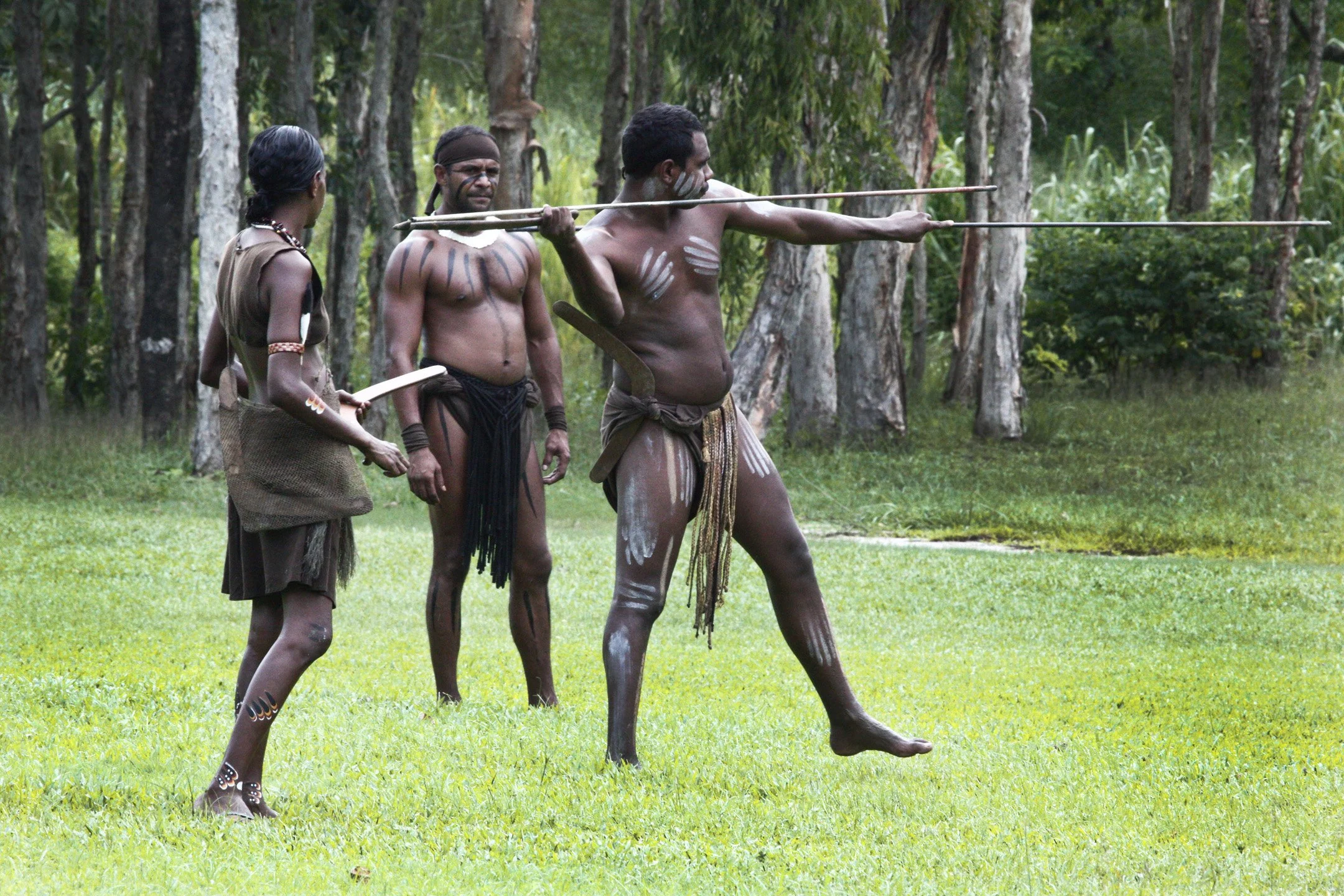Centuries after British Settlement and mass destruction of their culture, Aboriginal Australians continue to be discriminated against by the Australian government.
Aboriginal Men in 2011. Steve Evans. CC BY 2.0
Aboriginal Australians have experienced systemic disadvantages throughout Australia’s history. Noted as one of the oldest Indigenous communities living outside of Africa, Aboriginal Australians led an advanced lifestyle in precolonial times. According to an article in The Conversation, Indigenous Australians are noted for “establishing complex religions, burying their dead with elaborate rituals, engaging in long-distance trade, making jewelry, and producing magnificent works of art” when Europe was still home to Neanderthals.
The ancestors of Indigenous Australians migrated to the continent from Southeast Asian countries like Malaysia, Singapore, Brunei, Indonesia and the Philippines. Numerous studies investigating the Indigenous group conclude that Aborigines have lived in Australia for approximately 65,000 years. Across the country, Aborigines speak more than 250 distinct languages. There are two classifications of Indigenous people in Australia—the Aboriginal peoples and the Torres Strait Islanders. Aboriginal Australians are those whose ancestors lived in mainland Australia before the arrival of European colonists, while Torres Strait Islanders have traditionally lived in an archipelago between the continent and Papua New Guinea to the north.
Over time, Australia’s Aboriginal presence has fallen to just 3% of the national population due to colonization and legal restrictions. When British Settlement began in 1788, 750,000 to 1.25 million Aboriginal Australians were living in the country at the time. The British brought epidemics, land seizures, and violent conflict, subjecting most Aboriginal Australians to poverty and massacres. According to National Geographic, “[t]hough the term ‘genocide’ remains controversial, people related to the continent’s first inhabitants are widely considered to have been wiped out through violence.”
From 1910 to 1970, the Australian government created assimilation policies for Aboriginal Australian children, resulting in the Stolen Generations. Successive administrations took Indigenous children away from their families and put them into adoptive families or institutions, forbidding them from speaking their native languages or even keeping their original names.
Today’s Aborigines still face various hurdles as a result of settlement, one being accessible maternal healthcare. Edie, an Aboriginal woman interviewed by BBC, explains her recent involvement with a movement called Birthing on Country following the birth of her fourth child and observations about the dearth in Indigenous mother healthcare in Australia. Her colleague and co-director of the Molly Wardahuha Research Centre Yvette Roe explains that the organization is, “a concept with key elements: when we talk about ‘Country,’ we’re talking about ancestral connection to the country where we’re born. We’re talking about 60,000 years of connection to the land and sky.” Lack of proper maternal care for Indigenous mothers results in them being three times more likely to die during childbirth than non-Indigenous mothers, and their babies almost twice as likely to die in the first year. The maternal health crisis reflects general disparities that exist for Australia’s Indigenous population. Aboriginal Australians and Torres Strait Islander people face high levels of discrimination, unemployment, poor housing and poor education compared to their counterparts. Concentration in remote locations has also limited access to life-saving services.
Additionally, Aboriginals continue to fight for general recognition and restitution by the Australian government. As the only country in the Commonwealth of Nations country to not make a treaty with its Indigenous population, Australia's Parliament attempted to recognise Aboriginals in its Constitution and create an Indigenous advisory board that would weigh in on national, relevant issues along with Parliament. In the fall of 2023, Australia rejected the referendum. While most of the Indigenous voters were in favor of the referendum, 60% of Australian voters said no. The Aboriginal community took a week of silence and reflection following the decision. In the Queensland Parliament, the "Path to Treaty Act 2023" was legislated with an 88 out of 92 member majority. Truth and Treaty Queensland described it as a, “Historic piece of legislation … the Act provides the legislative framework for the Truth-telling and Healing Inquiry and the First Nations Treaty Institute to be established.”
Since the late 1700’s, Aboriginal Australians have struggled at the hands of foreign settlers. Whether it is maternal healthcare or incorporation into Australia’s Constitution, their rights and needs have been and continue to be disregarded in numerous ways across the country.
TO GET INVOLVED
Australians are encouraged to get involved with their local Aboriginal communities by attending community events and participating in local Aboriginal tours. Residents can also explore local Aboriginal Land Councils to learn about what actions are currently being taken in their communities. Creativespirits.info explains what land councils do to help Indigenous Australians and has a comprehensive list of Aboriginal land councils in Australia. Activist groups such as Australians for Native Title and Reconciliation (ANTaR) and Stop the Intervention Collective Sydney (STICS) are actively working to help remediate the injustices Aboriginals are facing across Australia.
Aanya Panyadahundi
Aanya is a student at the University of Michigan studying sociology and journalism on a pre-law path. She loves to travel the world whenever she can, always eager to learn more about the different cultures and societies around her. In her free time, she likes to play the violin, ski, and listen to podcasts.


